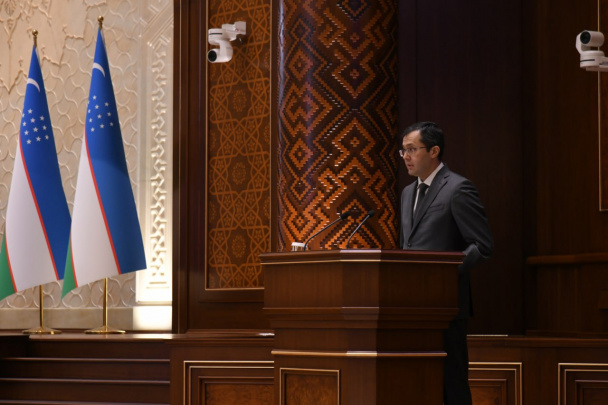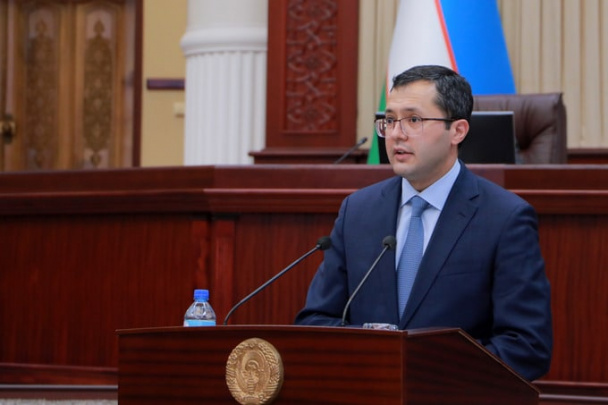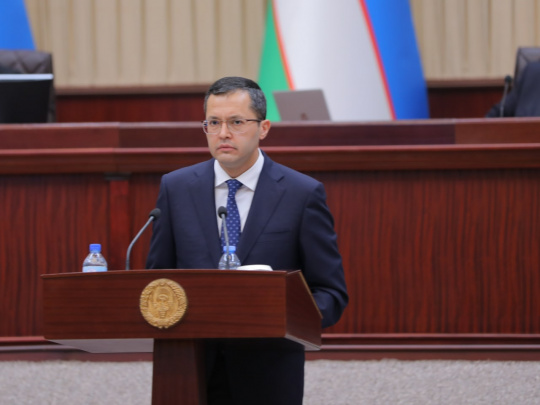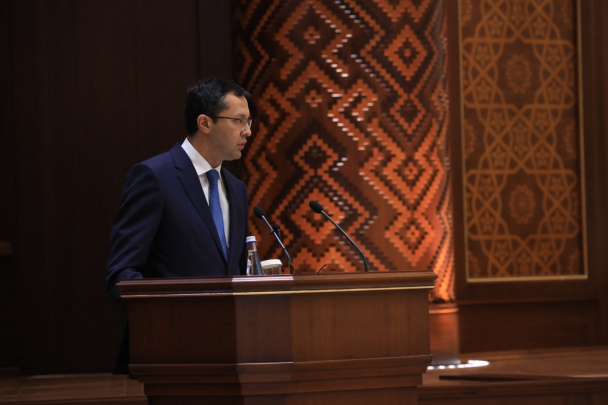“Plans have changed” – Timur Ishmetov comments on intensified dynamics of external debt
At the first meeting of the Debate Club, Minister of Finance Timur Ishmetov answered questions about the dynamics of external debt of Uzbekistan this year, the reasons for going into debt despite having internal reserves.
“At the end of last year and at the beginning of this year, when we approved the State budget, our plans were completely different. No one predicted the changes in late February or early March.
Changes in oil prices in international markets have begun to affect plans. Then, the quarantine due to the pandemic drastically changed them.
Our budget was approved at the end of last year with a deficit for 2020. Undoubtedly, we plan to cover the deficit with external debt; a part of it will come from international financial institutions and another part from Eurobonds.
We had planned to offer Eurobonds in the spring while borrowing funds from international financial institutions was scheduled for the end of the year.
But what happened around the world has also affected international financial markets. Now, after 2-3 months, the financial markets have also become a bit more stable and the ambiguity is gone. But in February and March, even international financial institutions could not give a clear forecast of how serious the crisis would be and how long it would last. The lack of accurate forecasts has also affected international capital markets; for a certain period of time they were almost closed to developing countries, as all investors have taken their resources out of developing countries and started investing in other assets,” Timur Ishmetov said.
He stated that plans have changed due to the mentioned reasons.
“That’s when we had to change plans. The first thing is to postpone attracting loans using Eurobonds until the next period of the year and to look for alternatives. Our budget revenues and expenditures for the second quarter have also been affected; our revenue plans were changed downwards, while we, in contrast, were forced to increase spending. During the quarantine period we decided to spend more on healthcare,” said the Minister.
During the pandemic, resources of the Fund for Reconstruction and Development have not been used, instead, the country decided to borrow.
“When it comes to whether to borrow or use reserves to finance expenditures, the Fund for Reconstruction and Development has a special function – it is mainly used to invest in long-term large-scale investment, infrastructure projects and attract additional foreign investment. In other words, there is no quick, clear mechanism for direct use of the budget funds. In addition, at that time nobody could predict how long the crisis would last, how serious it would be, and whether capital markets would indeed be open in the fall, and therefore, we certainly preferred to take advantage of long-term and cheap resources. This is because using the resources of the Reconstruction and Development Fund would have such negative consequences as an increase in debt and an adverse effect on the rating of the country. The use of the Fund’s reserves would lead to an increase in the overall fiscal balance deficit, which could concern our rating agencies because the overall budget deficit would be growing even without an increase in external debt. Therefore, in our opinion, it is more purposeful to use the reserves of the Fund for Reconstruction and Development for other purposes in the future,” Timur Ishmetov said.
Related News

18:44 / 27.12.2022
Minister of Finance: Budget funds freed up from the reduction of state bodies will be used to address social issues

19:40 / 19.12.2022
“Uzbekistan’s foreign debt is forecast to be $32.6 billion in 2023” – Timur Ishmetov

20:54 / 23.11.2022
“Subsidy for electricity and gas is being increased in return for not increasing tariffs” - Ishmetov comments on an increase in budget expenses

16:09 / 18.11.2022




